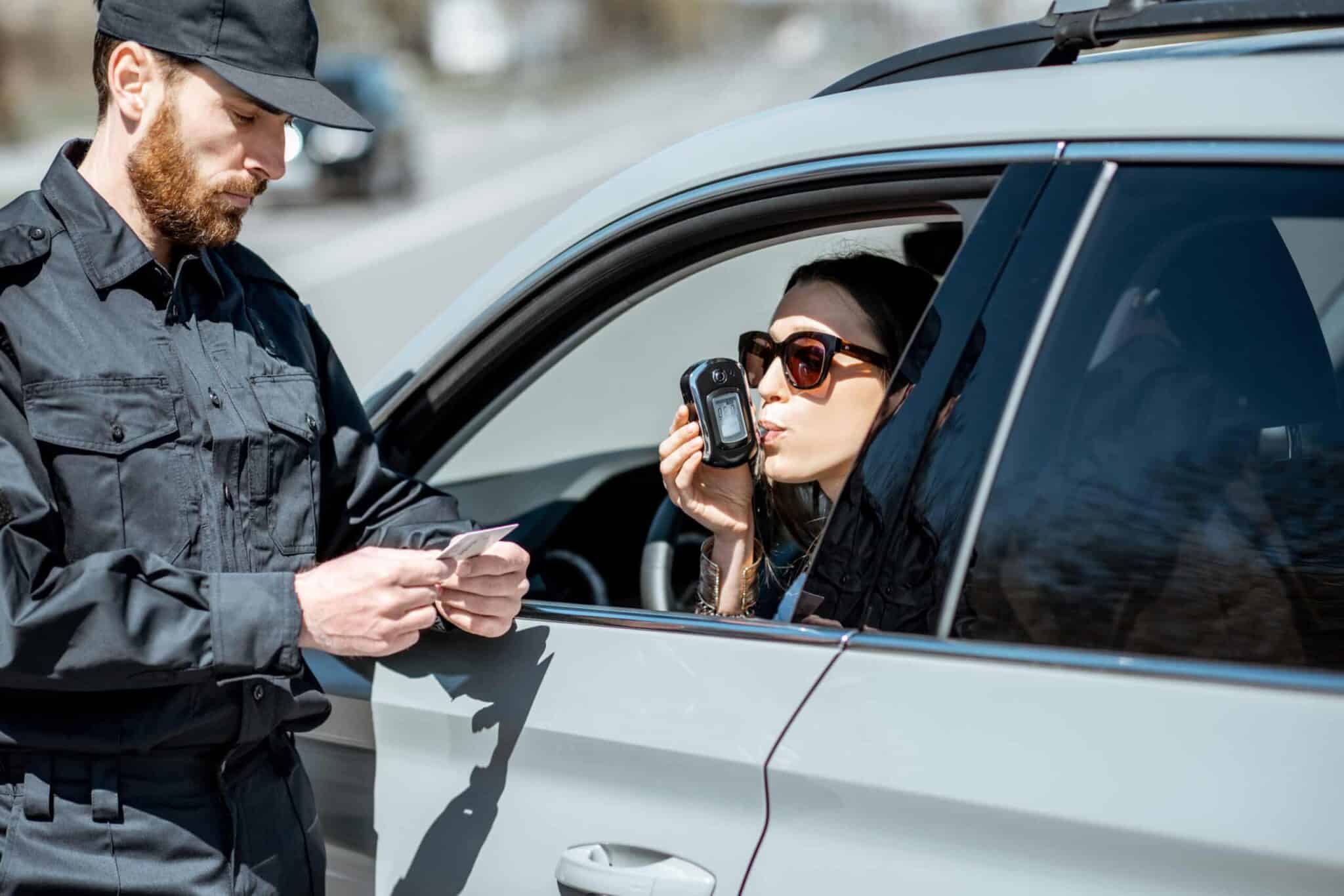How Your Driver’s License Agreement Affects Your DUI Case
Florida’s implied consent law is codified in Section 316.1932 of the Florida Statutes. The law establishes that any person who accepts the privilege of operating a motor vehicle within the state is deemed to have given consent to submit to approved chemical tests of their breath, blood, or urine if lawfully arrested for driving under the influence. This consent is “implied” by the act of driving on Florida roads—not something you actively agree to, but rather a condition of having a Florida driver’s license.
For a law enforcement officer to legally request a chemical test, they must first have probable cause to arrest you for DUI. The request must occur after a lawful arrest, not before. If an officer has not formally arrested you or lacks probable cause for the arrest, any request for chemical testing may be deemed unlawful, potentially invalidating refusal charges.
Our attorneys closely examine the circumstances of each arrest to determine if proper procedures were followed.
It’s important to understand the distinction between field sobriety tests and chemical tests. Field sobriety tests (walking a straight line, standing on one leg, etc.) are not covered by implied consent laws. You can refuse these tests without automatic penalties. Chemical tests (breath, blood, urine), however, are covered by implied consent, and refusing them triggers both administrative and potential criminal consequences.
Types of Chemical Tests and Your Rights
In Florida, officers typically request breath tests using devices like the Intoxilyzer 8000, which measures alcohol content in exhaled breath. Blood tests may be requested when a driver is unable to provide a breath sample due to injury or when drugs other than alcohol are suspected. Urine tests are less common but may be used when drug impairment is suspected or when other test methods aren’t available.
Each test type has specific protocols that officers must follow to ensure accuracy and admissibility in court.
Florida law also provides certain rights during the testing process. After submitting to the officer’s test, you have the right to request an independent test at your own expense. Officers must make reasonable accommodations to help you exercise this right.
Additionally, Florida case law established in cases like State v. Gerace has clarified that officers must inform drivers of the consequences of refusal before a refusal can be used against them in court. This requirement provides an important protection and potential defense strategy when proper warnings aren’t given.
First-Time vs. Repeat Refusals
For a first-time refusal in Florida, the penalties are primarily administrative, resulting in a driver’s license suspension of 12 months. First offenders may be eligible for a hardship license after completing DUI school and serving a portion of their suspension. However, there are no additional criminal charges associated with a first refusal, assuming no aggravating factors are present.
A second or subsequent refusal presents much more serious consequences. Under Florida law, a second or subsequent refusal is not only subject to enhanced administrative penalties but is also classified as a first-degree misdemeanor criminal offense.
This means that beyond the 18-month license suspension, you can face up to one year in jail and $1,000 in fines just for the refusal itself—separate from any penalties associated with the underlying DUI charge. This escalation demonstrates how seriously Florida takes repeat refusals.
What You Risk When Saying No to Chemical Testing
Refusing a chemical test in Florida triggers a cascade of consequences that can affect your driving privileges, criminal record, and personal freedom. These consequences are divided into two categories: administrative penalties handled by the Florida Department of Highway Safety and Motor Vehicles and criminal penalties processed through the court system. Understanding both is key to making informed decisions if you’re facing DUI refusal charges.
Administrative Penalties
When you refuse a chemical test in Florida, the arresting officer will immediately confiscate your driver’s license and issue a temporary driving permit valid for 10 days. During this brief window, you must request a formal review hearing with the DHSMV to contest your license suspension. Failing to request this hearing within the 10-day timeframe results in automatic suspension of your driving privileges—12 months for a first refusal or 18 months for subsequent refusals.
The administrative suspension operates independently of any criminal proceedings. Even if your DUI charge is later reduced or dismissed, the administrative suspension remains in effect unless successfully challenged at the DHSMV hearing.
At this hearing, our attorneys can contest the legality of your stop, the probable cause for your arrest, and whether proper implied consent warnings were given. These hearings provide an important opportunity to preserve your driving privileges.
After serving a portion of the suspension period (typically 30-90 days depending on circumstances), most drivers become eligible to apply for a hardship license. This restricted license allows travel for essential purposes such as work, school, medical appointments, and church.
To qualify, you must enroll in DUI school, obtain an FR-44 insurance certification, and meet other requirements. The Weinstein Legal Team guides clients through this complex application process to help them maintain necessary mobility.
Criminal Penalties for Test Refusal
For first-time refusals, the consequences are limited to the administrative license suspension described above. However, Florida law elevates a second or subsequent refusal to a first-degree misdemeanor, punishable by up to one year in county jail, 12 months of probation, and fines up to $1,000. This criminal charge exists separately from any underlying DUI charge you might also face.
If you’re convicted of both DUI and criminal refusal, the penalties can compound. Judges often view refusal as an indication of consciousness of guilt, potentially leading to harsher sentencing on the DUI charge.
Additionally, a refusal conviction counts as a prior offense for any future DUI charges, meaning your next DUI would be treated as a second offense with enhanced penalties. Our defense team works diligently to prevent these compounding consequences through strategic legal advocacy at every stage of your case.
How We Fight Back Against Your Refusal Charges
Despite the seemingly straightforward nature of refusal charges, numerous legal defenses exist that can lead to reduced penalties or dismissal. The Weinstein Legal Team has successfully challenged refusal charges by examining every aspect of the arrest process, from the initial traffic stop through the testing procedure. Each case presents unique circumstances that may provide opportunities for effective defense strategies.
Challenging the Lawfulness of the Stop or Arrest
One of the most effective defenses in refusal cases involves challenging whether the officer had legal grounds to initiate the traffic stop. Police must have reasonable suspicion of a traffic violation or criminal activity before stopping your vehicle. Common improper stops include those based on anonymous tips without corroboration, racial profiling, or stops at roadblocks that don’t follow proper constitutional guidelines.
If we can demonstrate the stop was unlawful, all evidence obtained afterward—including the refusal—may be suppressed.
Similarly, we scrutinize whether the officer had probable cause to arrest you for DUI before requesting a chemical test. Under Florida law, chemical tests can only be requested after a lawful DUI arrest. Probable cause requires specific, articulable facts indicating impairment, not merely the odor of alcohol or admission to having a drink.
Officers often rely on observations like slurred speech, bloodshot eyes, or poor performance on field sobriety tests. We examine these factors closely, often finding that medical conditions, nervousness, fatigue, or improper test administration explain these observations better than impairment.
If either the stop or arrest lacked proper legal foundation, we file motions to suppress evidence of the refusal. Success on these motions can lead to dismissal of both the refusal and DUI charges, as the prosecution may be left without sufficient evidence to proceed. Our attorneys’ thorough understanding of search and seizure law makes us particularly effective at identifying and exploiting these constitutional violations.
Contesting “Refusal” Classification
Not all failures to provide a sample constitute a legal “refusal” under Florida law. For instance, if you made genuine attempts to provide a breath sample but physical conditions prevented adequate samples, this should not be classified as a refusal. Medical conditions like asthma, COPD, or respiratory infections can make it physically impossible to provide sufficient breath volume.
Similarly, anxiety or panic attacks can interfere with testing. The Weinstein Legal Team works with medical experts to document these conditions when applicable.
Technical issues with testing equipment also provide grounds for challenging refusal classifications. Breath testing machines require proper calibration and maintenance to function correctly. If a device repeatedly registers “insufficient sample” despite good-faith efforts to blow, this may indicate equipment malfunction rather than intentional refusal.
Our team investigates maintenance records and calibration logs for testing equipment, often uncovering irregularities that support our clients’ defense that no true refusal occurred.
Additional Defense Strategies
A common defense involves challenging whether officers properly informed you about the consequences of refusal as required by Florida law. Before a refusal can be used against you, officers must clearly advise that refusing will result in license suspension and, for second or subsequent refusals, criminal charges. This warning must be given in a language you understand and in a manner that ensures comprehension.
We review body camera footage, arrest reports, and witness statements to verify proper warnings were provided. Officers who skip or rush through these warnings create an opportunity to invalidate the refusal charge.
Medical conditions unrelated to respiratory issues can also provide valid defenses. Traumatic brain injuries, concussions from accidents, language barriers, hearing impairments, or developmental disabilities may prevent proper understanding of testing instructions or implied consent warnings.
Additionally, certain medical conditions like diabetes, ketosis, or auto-brewery syndrome can create false positives or cause symptoms mimicking intoxication. Our team consults with medical professionals to document these conditions and explain their relevance to your case.
The legal definition of “operating” a vehicle provides another defense avenue. In Florida, you must be in “actual physical control” of a vehicle to be charged with DUI. If you were in a parked car with the engine off, sleeping in the backseat, or otherwise not in position to operate the vehicle, we can challenge whether you were legally “driving” or in control of the vehicle when the officer made contact.
This defense can undermine the foundation of both the DUI and the refusal charge, as implied consent only applies to those who were actually driving or in physical control of a vehicle.















